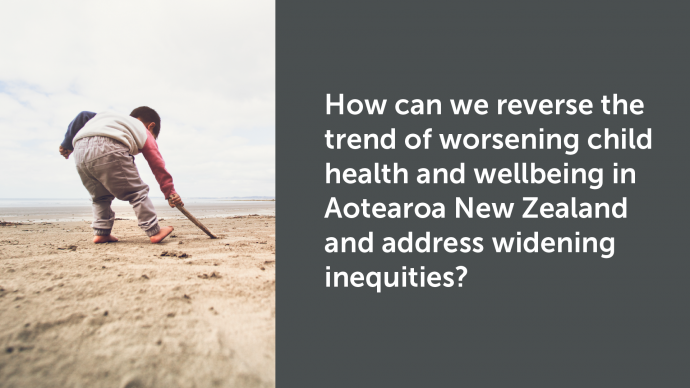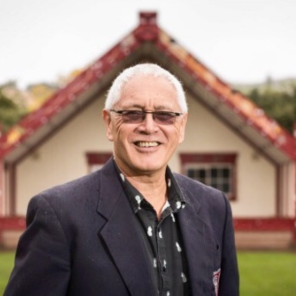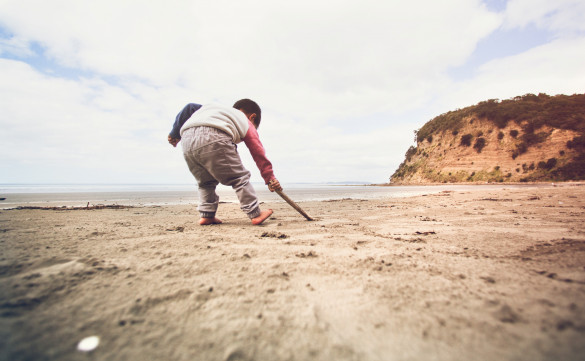Expert perspective: David Tipene-Leach MNZM

Professor David Tipene-Leach MNZM, a general practitioner and public health physician who has dedicated his career to improving healthcare, research, and medical education, urges a focus on preventing Sudden Unexpected Death in Infancy (SUDI) through culturally grounded, community-led initiatives.
Sudden Unexpected Death in Infancy (SUDI) remains a significant public health concern in Aotearoa New Zealand, disproportionately affecting Māori infants. Public health messages around bedsharing and smoking in pregnancy have not been effective and this has previously been attributed to the cultural significance of bedsharing, and of smoking as a behaviour of socioeconomic challenge.
Recent national and regional evaluations of SUDI-prevention services have highlighted fragmented, uncoordinated and siloed services with a lack of effective leadership, strategic direction and resourcing alongside disorganised antenatal care, adverse antenatal experiences, and inconsistent service-delivery in the regions. Such dysfunction critically compromises the effectiveness of any form of service delivery.
This systemic dysfunction is reflected in the lived experiences of families. A complete recent review of coronial data presents important issues faced by families who have experienced a SUDI death. Firstly, deaths were experienced by whānau living in poverty with very poor housing conditions. Secondly, all families had heard the prevention message around avoidance of bedsharing if there was smoking in pregnancy – most did not take up cessation efforts and most bedshared. But most significantly, three-quarters of these parents had sought medical review because their infant was sick, and all said they were exhausted. And whilst most bedshared routinely, those that didn't made the decision to bedshare that night because they genuinely thought it was the best way to look after their baby!
Services that don't work and the extremely difficult social circumstances of at-risk whānau combine to make the SUDI disaster in Aotearoa an ongoing phenomenon. A likely solution is particularly difficult to pin down.
The consensus in Māori SUDI prevention circles is that culturally grounded, community-led initiatives are the only viable pathway to the reduction of SUDI deaths.
Antenatal wānanga which integrate traditional Māori practices and knowledge have shown promise in engaging expectant mothers and their families and these wānanga often include the weaving of wahakura — traditional flax bassinets. The introduction of wahakura and similar safe-sleep devices into a national Safe Sleep programme fifteen years ago was associated with a significant decrease in Māori infant mortality rates although that trend has come to an end. Such programmes honour cultural practices and thereby attract pregnant Māori women, provide safe-sleeping devices for infants, seamlessly equip parents with antenatal education, and foster a sense of both connection and empowerment among participants.
SUDI prevention has a difficult future in Aotearoa. It's not just about simple messages for homogenous populations. Our increasingly (SUDI) high-risk population has housing poverty, nicotine addiction, and are alienated from health services - and we are systemically ill-equipped to consider such high level problems. We must therefore invest heavily in accessible Māori-led, culturally appropriate antenatal programmes of which SUDI prevention is a major outcome. Not to do so would reflect, not a lack of solutions, but a lack of political and professional will to invest in the lives of our most vulnerable - something no fair and compassionate society should tolerate."
Published August 2025
 Professor David Tipene-Leach MNZM, MBChB, FNZRCGP(Dist), FNZCPHM (Ngāti Kahungunu, Ngāti Kere, Ngāti Manuhiri) has worked to prevent infant deaths for whānau Māori as a GP, a policy advocate, and through his research at the Eastern Institute of Technology. His contributions range from improving public-health messages and support for grieving whānau, to changing how coroners investigate and report on infant deaths, and implementing interventions to ensure safer sleeping practices. He received the Society’s inaugural Tahunui-a-Rangi Innovation Medal.
Professor David Tipene-Leach MNZM, MBChB, FNZRCGP(Dist), FNZCPHM (Ngāti Kahungunu, Ngāti Kere, Ngāti Manuhiri) has worked to prevent infant deaths for whānau Māori as a GP, a policy advocate, and through his research at the Eastern Institute of Technology. His contributions range from improving public-health messages and support for grieving whānau, to changing how coroners investigate and report on infant deaths, and implementing interventions to ensure safer sleeping practices. He received the Society’s inaugural Tahunui-a-Rangi Innovation Medal.

